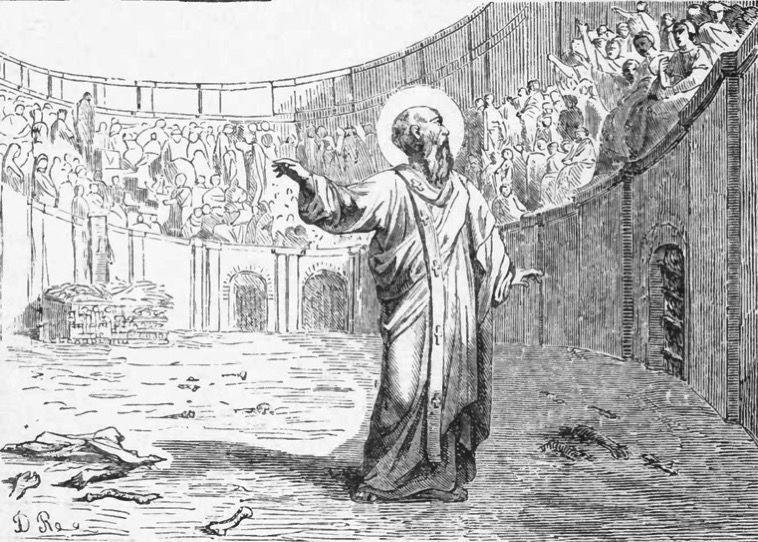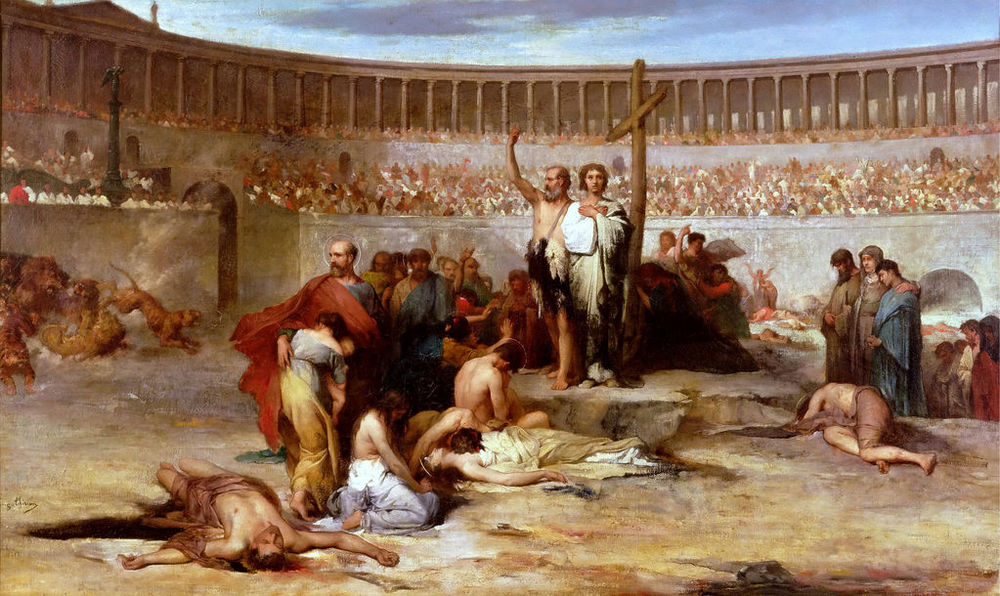Monday, February 24, 2020
Sunday, January 12, 2020
Friday, January 3, 2020
Tuesday, January 29, 2019
Deafening Our Conscience Through Outrage
“The Pharisee is no longer aware that he too is guilty. He is perfectly at ease with his own conscience. But this silence of his conscience makes it impossible for God and men to penetrate his carapace—whereas the cry of conscience that torments the tax collector opens him to receive truth and love. Jesus can work effectively among sinners because they have not become inaccessible behind the screen of an erring conscience, which would put them out of reach of the changes that God awaits from them—and from us. Jesus cannot work effectively among the righteous because they sense no need for forgiveness and repentance; their conscience no longer accuses them but only justifies them.”—Values in a Time of Upheaval, p. 82
“Let each therefore, with an upright conscience, entering into a review of what he has done, and bringing his whole life before him, consider, whether he is not deserving of chastisements and punishments without number? And when he is indignant that some one, who has been guilty of many bad actions, escapes with impunity; let him consider his own faults, and his indignation will cease. For those crimes appear great, because they are in great and notorious matters; but if he will enquire into his own, he will perhaps find them more numerous.”
Saturday, November 24, 2018
Wednesday, June 6, 2018
Saturday, January 14, 2017
God is Not Mocked: Thoughts on the Use and Misuse of Conscience
7 Make no mistake: God is not mocked, for a person will reap only what he sows, 8 because the one who sows for his flesh will reap corruption from the flesh, but the one who sows for the spirit will reap eternal life from the spirit. (Galatians 6:7–8).
Introduction
A common theme among combox warriors, when it comes to bishops’ conferences issuing guidelines for the divorced and remarried receiving the Eucharist is, “The Floodgates are opened.” The assumption is the Church intends a loophole for Catholics in a state of mortal sin to receive the Eucharist. Now, it’s not my intention to analyze these different guidelines and judge them in terms of fidelity to the Church. Rather, I want to talk about conscience in general.
Some Catholics seem to make the same mistake over the term “conscience,” as they did by equating the term “mercy” with laxity. Now it is true that some Catholics abuse the term “conscience,” treating it as if it meant “do what you will.” But inserting that meaning, where the Church speaks on “conscience,” would be a gross misrepresentation of the term. As Gaudium et Spes #19 points out:
Undeniably, those who willfully shut out God from their hearts and try to dodge religious questions are not following the dictates of their consciences, and hence are not free of blame
Catholic Church, “Pastoral Constitution on the Church in the Modern World: Gaudium Et Spes,” in Vatican II Documents (Vatican City: Libreria Editrice Vaticana, 2011).
In other words, the person who thinks of the Eucharist as a “right” without considering where they stand before God will have to answer for an unworthy reception.
Basics of Conscience
Conscience is not a case of “feeling good about something.” Conscience tells us I must do X, or I must not do Y. Nor is conscience an infallible guide. If a person receives false information on right or wrong, their conscience can lead them to doing something objectively wrong while thinking it right, or scrupulously thinking something harmless is wrong. That is why the Church says we must form our consciences in accord with her teaching. If we have doubts on whether something would be morally right, we have the obligation not to act against our doubts until we resolve the issue.
What’s less known however is when conscience tells us we must act in a certain way, to refuse to follow conscience means we are choosing to do what we believe is morally wrong. So a person with a malformed conscience who believes it is morally wrong to do something, he must not do it. This scandalizes some Catholics who see this and thinks it means “justifying” a moral evil. It does not. What it does is reduce the culpability for a person who has no way of knowing better if they should reach a false conclusion in good faith.
However, people cannot refuse to seek out the truth. Nor can they say their conscience “permits” something if they have merely formed bad habits that deafen them to the truth. Again, Gaudium et Spes points out:
16. In the depths of his conscience, man detects a law which he does not impose upon himself, but which holds him to obedience. Always summoning him to love good and avoid evil, the voice of conscience when necessary speaks to his heart: do this, shun that. For man has in his heart a law written by God; to obey it is the very dignity of man; according to it he will be judged. Conscience is the most secret core and sanctuary of a man. There he is alone with God, Whose voice echoes in his depths. In a wonderful manner conscience reveals that law which is fulfilled by love of God and neighbor. In fidelity to conscience, Christians are joined with the rest of men in the search for truth, and for the genuine solution to the numerous problems which arise in the life of individuals from social relationships. Hence the more right conscience holds sway, the more persons and groups turn aside from blind choice and strive to be guided by the objective norms of morality. Conscience frequently errs from invincible ignorance without losing its dignity. The same cannot be said for a man who cares but little for truth and goodness, or for a conscience which by degrees grows practically sightless as a result of habitual sin.
Catholic Church, “Pastoral Constitution on the Church in the Modern World: Gaudium Et Spes,” in Vatican II Documents (Vatican City: Libreria Editrice Vaticana, 2011).
In other words, if a person is ignorant of the truth through no fault of their own, they are not held accountable for their ignorance. But if they could have learned if they tried or if they deafened themselves to their conscience, they will be judged.
God is Not Mocked
If the Pope, bishop, or priest insists on dialogue with the sinner so they can learn to do what is right, but the person whom subsidiarity makes responsible fails to do so, it is they who are to blame for the laxity or rigidity which leads the person of good faith astray. Or if this person does meet his responsibility but the sinner refuses to listen, then the sinner is to blame.
This is not some modernist error. This is the teaching of Scripture:
1 The word of the Lord came to me: 2 Son of man, speak to your people and tell them: When I bring the sword against a land, if the people of that land select one of their number as a sentinel for them, 3 and the sentinel sees the sword coming against the land, he should blow the trumpet to warn the people. 4 If they hear the trumpet but do not take the warning and a sword attacks and kills them, their blood will be on their own heads. 5 They heard the trumpet blast but ignored the warning; their blood is on them. If they had heeded the warning, they could have escaped with their lives. 6 If, however, the sentinel sees the sword coming and does not blow the trumpet, so that the sword attacks and takes someone’s life, his life will be taken for his own sin, but I will hold the sentinel responsible for his blood (Ezekiel 33:1–6).
Since the Pope has routinely called for people to turn back to Our Lord, told bishops and pastors that they are to talk with sinners to help them understand the teaching of the Church and to investigate the individual situations of the person, we cannot say he is silent as a watchman. People may misrepresent him by falsely trying to insist that his conditions, which apply to a limited amount of people, are a universal change in teaching, but these are falsehoods on the part of the person, not the Pope.
Conclusion
And that’s why I have problems with combox warriors treating talk about conscience as if it meant discarding Church teaching. Yes, people can lie to their confessors in order to receive the Eucharist unworthily, but God will not be deceived. Yes, some confessors may fail in their duty to form consciences, but that does not make the duty to obey conscience any less. Those in error through no fault of their own will be treated more mercifully for doing wrong while thinking it right, than those who know they do wrong and do it anyway.
So let’s not assume that when the Pope speaks of mercy and conscience, he means them to justify evasion of doing right. Nor should we assume he approves those who misuse his writings for their own purposes. His teaching is about reconciling sinners with God, not giving people a “Get out of Hell Free” card.





